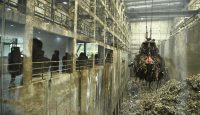
The World Bank Won't Back Oil and Gas - What Now?
At the One Planet Summit in Paris last week, the World Bank Group announced that, from 2019, it will no longer finance upstream oil and gas. This reflects the Bank’s decision to realign its development assistance with climate commitments. But how does this square with the priorities of those countries that want to use their fossil fuels to drive economic growth and improve access to energy? And can it meaningfully affect CO2 emissions, when alternative sources of investment and assistance are still available for oil and gas development?
Between 2000 and 2015, around $4.8 billion of official development assistance went to upstream oil and gas development, and $22.2 billion to (often-linked) thermal power generation.… Seguir leyendo »



